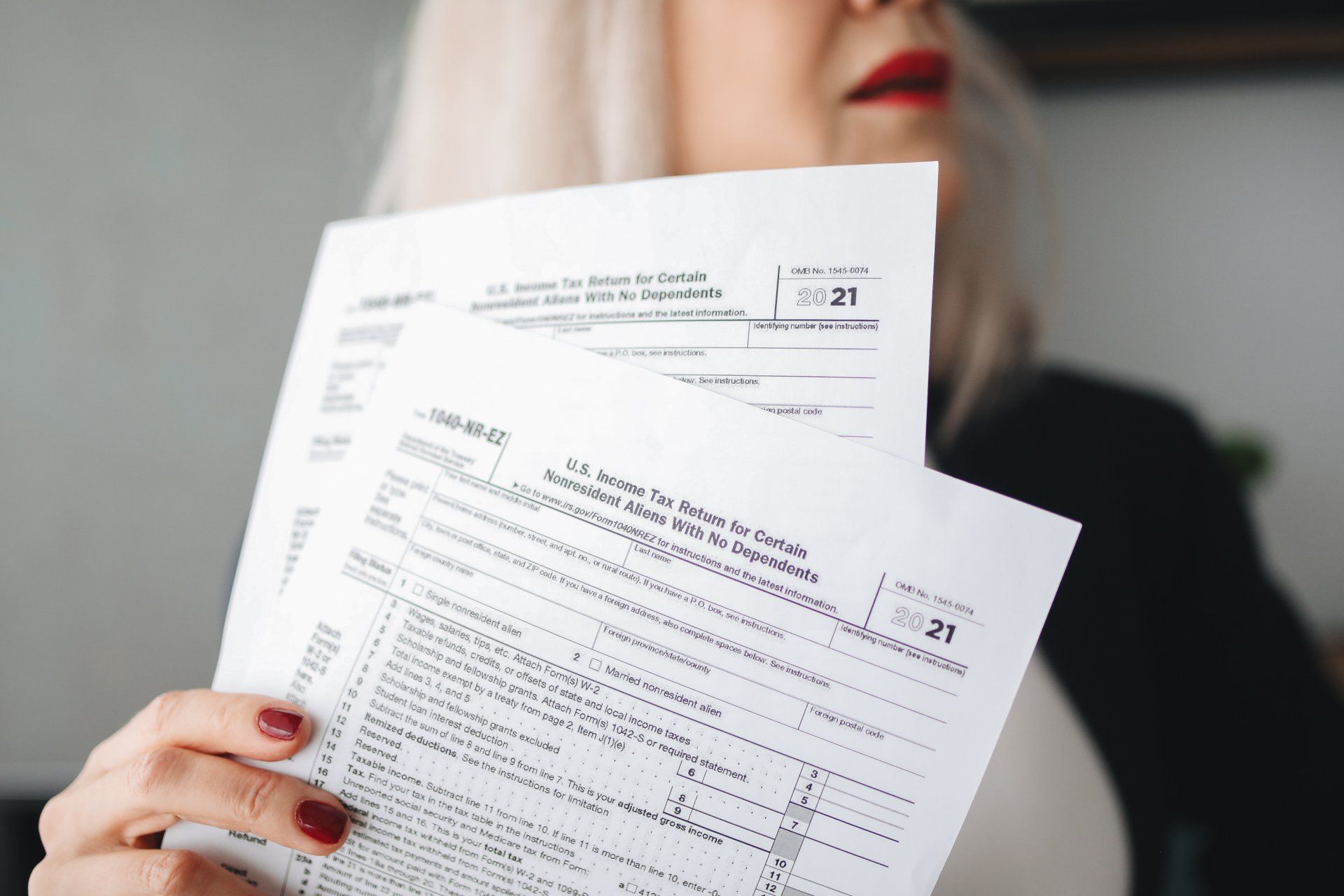A USCIS Anuncia Possíveis Atualizações ao Exame de Naturalização
Monica Zafra • October 6, 2023
Click here to read this article in English
Em dezembro de 2022, o Departamento de Segurança Interna publicou um aviso anunciando que a USCIS (Serviço de Cidadania e Imigração dos Estados Unidos) conduziria um teste para atualizar o atual exame de naturalização, que consiste em quatro elementos: leitura, escrita, conhecimento cívico e habilidade de falar inglês. As partes de Leitura e Escrita foram padronizadas, mas o propósito do teste é avaliar o componente cívico com formato e conteúdo atualizados, bem como desenvolver um novo componente de fala em inglês que poderia se tornar o novo padrão.
Isso é uma resposta direta à Ordem Executiva
do Presidente Biden chamada Restaurando a Confiança em Nosso Sistema de Imigração Legal e Fortalecendo os Esforços de Integração e Inclusão para Novos Americanos. https://www.whitehouse.gov/briefing-room/presidential-actions/2021/02/02/executive-order-restoring-faith-in-our-legal-immigration-systems-and-strengthening-integration-and-inclusion-efforts-for-new-americans/
Esta Ordem Executiva inclui uma diretriz para revisar o processo de naturalização, então a USCIS tem conduzido revisões para melhorar e atualizar o exame de naturalização para que ele esteja em conformidade com padrões da indústria.
O teste está provisoriamente agendado para um período de cinco meses em 2023 e será avaliado com a ajuda de organizações comunitárias voluntárias que trabalharão com imigrantes que estão aprendendo a língua inglesa e residentes permanentes legais que se preparam para a naturalização. A USCIS procurará cerca de 1.500 indivíduos matriculados em aulas de educação de adultos para fazer o teste do exame e a agência poderá usar os resultados deste teste para apoiar mudanças no exame de naturalização.
Se tiver alguma dúvida, por favor, entre em contato com nossos escritórios.
Este blog não se destina a fornecer aconselhamento jurídico e nada aqui deve ser interpretado como estabelecimento de um relacionamento advogado-cliente. Por favor, agende uma consulta com um advogado de imigração antes de agir com base em qualquer informação lida aqui.
Monica Zafra
Similar Posts

To be eligible for U.S. naturalization based on being a lawful permanent resident for at least five years, you must: Prove you have been a lawful permanent resident of the U.S. for at least five years; Demonstrate continuous residence in the U.S. for at least five years immediately before applying for naturalization; Show you have been physically present in the U.S. for at least 30 months out of the five years immediately before applying for naturalization; and Pass the naturalization test. The naturalization test consists of the English and civics test. The applicant must show his/her ability to read, write, and speak basic English. The interviewing USCIS officer will ask the applicant to read a sentence in English and to write a sentence in English. If the applicant demonstrates his/her ability to read, write, and speak English, the applicant passes this portion of the test. The civics test is an oral test, and the applicant is asked questions about the American government and history. The USCIS officer will ask the applicant up to 10 questions from the list of 100 civics test questions. To pass this portion of the test, the applicant must answer at least 6 questions correctly. If the applicant satisfies all of the eligibility requirements and passes the naturalization test, the last step before naturalizing is to attend the oath ceremony to become a naturalized U.S. citizen. If you have any questions and would like more information about your eligibility for naturalization, please contact our office to schedule a consultation with our experienced immigration attorneys.

U.S. Citizenship and Immigration Services made changes to the naturalization application and the filing fee which became effective April 1, 2024. The naturalization application, Form N-400, was updated. The new form edition is dated 04/01/2024. As of June 3, 2024, USCIS will only accept the new form edition. The filing fee for Form N-400 also changed. The prior filing fee was $640.00 plus a biometric fee of $85.00, for a total of $725.00. The new filing fee became effective April 1, 2024, so all naturalization applications postmarked April 1, 2024, or later, must include the new appropriate filing fee. The new general fee if you file a paper application is $760.00, and if you file the application online the fee is $710.00.

On March 31, 2024, U.S. Citizenship and Immigration Services (USCIS) implemented a policy update that limits gender marker selections on all immigration forms and systems to two biological sexes: male and female. This change eliminates the option for applicants to select a non-binary or “X” gender marker—an option that had previously been permitted on some forms. While USCIS emphasizes that this update does not change who qualifies for immigration benefits, it may significantly impact how certain applications—particularly asylum claims based on gender identity-related persecution—are understood and evaluated. What Has Changed? Under the revised policy, applicants may now only choose “Male” or “Female” when completing USCIS forms. The ability to select a non-binary or third-gender option is no longer available. Applicants may still request to change their gender marker with USCIS, but only within the male/female binary. Supporting documentation, such as medical or legal records, is not required to make the change. This means that transgender individuals can still align their gender marker with their identity—if it falls within the two binary categories—but non-binary individuals are no longer represented. The change follows guidance issued by the federal Office of Management and Budget (OMB), which called for greater consistency in the collection of sex and gender data across federal agencies. Impact on Asylum Applicants This policy update is especially important for individuals applying for asylum based on persecution related to their gender identity. Under U.S. immigration law, asylum is available to people who have suffered persecution—or fear future persecution—based on their membership in a “particular social group.” This includes people targeted for being transgender, gender non-conforming, or otherwise not aligning with socially expected gender roles in their home country. Although the legal standard for asylum remains unchanged, the removal of the non-binary gender marker could make it harder for some applicants to clearly present and document their identity. In asylum cases, credibility and clarity are crucial. The ability to accurately reflect one’s gender identity on official forms can play an important role in establishing the foundation of a persecution claim. Now, applicants who identify as non-binary or outside the traditional male/female categories may be forced to select a gender that does not align with their lived experience. This could lead to confusion in their case file or require additional explanation during interviews or hearings. This policy could weaken the strength of some asylum claims—not because the underlying facts have changed, but because the official forms now fail to reflect the applicant’s true identity. For example: A non-binary person applying for asylum after being targeted in their home country may now have to select “Male” or “Female” on their asylum application, despite not identifying as either. This mismatch may lead adjudicators to question the applicant’s identity, possibly weakening the strength of the claim or requiring added clarification and documentation. In defensive asylum cases—where applicants are in removal proceedings—such inconsistencies could create unnecessary hurdles and complicate the evidentiary presentation. What Can Applicants Do? Despite the change, individuals can still pursue asylum based on gender identity. The underlying eligibility criteria remain the same. However, applicants should be prepared to clearly explain any differences between their stated identity and the gender marker required on USCIS forms. Applicants are encouraged to: Include a personal declaration explaining their gender identity in detail and how it relates to their fear of persecution. Provide evidence such as affidavits, country condition reports, or expert testimony that supports the claim. Work with an experienced immigration attorney who can help present the claim effectively and prepare for any questions that might arise from the new form limitations. The new USCIS policy on gender markers may seem like a technical update, but for asylum seekers fleeing gender-based persecution, it has real implications. While individuals are still legally eligible to seek protection, the limitation to binary gender options could make it more difficult to fully and clearly present their case. If you or someone you know is facing immigration challenges related to gender identity—or is concerned about how this policy may impact an asylum claim—please contact Santos Lloyd Law Firm to schedule a consultation with one of our experienced immigration attorneys. We’re here to help ensure your voice is heard and your case is handled with the care and expertise it deserves.

In 2025, the immigration landscape continues to shift under the weight of national security concerns, ushered in by Executive Order “ Protecting the United States From Foreign Terrorists and Other National Security and Public Safety Threats. ” This directive tasks federal agencies—including the U.S. Department of State—with implementing enhanced screening and vetting protocols for all foreign nationals seeking visas or other immigration benefits. The result? A dramatically intensified vetting process, along with mounting concerns from immigrants, attorneys, and civil liberties advocates alike. Traditionally, airport security focused on verifying travel documents and screening for prohibited items, while consular officers assessed the legitimacy of visa petitions and the admissibility of applicants. Extreme vetting, however, represents a significant shift toward a far more invasive and comprehensive investigative process. It now includes detailed background checks, biometric verification, digital forensics, and expansive scrutiny of an applicant’s online presence and criminal or financial records. Since President Trump’s second term began in January 2025, the implementation of extreme vetting has expanded rapidly. Today, border screenings go far beyond routine document checks, encompassing a full-scale evaluation of a traveler’s digital life. This pivot reflects the administration’s intensified focus on national security, but it has also triggered urgent discussions about privacy, due process, and the fairness of modern immigration enforcement. At U.S. ports of entry—especially airports—noncitizens are now subject to rigorous and invasive procedures, including: Inspection of cell phones, laptops, and other devices (including deleted content) Review of social media activity on platforms like TikTok, Instagram, and X (formerly Twitter) Biometric scanning, including fingerprinting and facial recognition These measures are no longer confined to travelers from high-risk countries. In practice, extreme vetting applies broadly across all nationalities, and increasingly affects lawful permanent residents as well. For noncitizens, this new landscape introduces a heightened level of uncertainty and vulnerability. Delays at U.S. consulates for visa issuance or renewal are becoming routine. Travelers must now be acutely aware of these changes, and those attending consular interviews or seeking visa renewals should be prepared to provide additional documentation verifying their maintenance of status, compliance with visa conditions, and the bona fide nature of their visa applications. It is critical to organize supporting materials in advance and be ready to answer questions about employment, education, travel history, and online activity. As the U.S. government continues to expand its use of data-driven risk assessment tools, travelers must adapt to a new normal, one where preparation is essential to navigating the immigration system without disruption.

For international business owners and entrepreneurs engaged in cross-border trade with the United States , the opportunity to expand operations and establish a physical presence in the U.S. may be more accessible than expected. The E-1 Treaty Trader Visa is specifically designed to facilitate this type of business activity and offers a strategic pathway for qualifying individuals to live and work in the United States while managing or developing trade relationships. While 2025 has brought a trend of changes in immigration policy, the E-1 visa continues to stand out as a viable and welcoming option . Despite increased scrutiny across various immigration categories, this visa remains suitable for those involved in consistent, qualifying trade with the U.S. Its structure and purpose align well with current business realities, making it a stable choice even amid policy shifts. The E-1 visa is available to nationals of countries that maintain a treaty of commerce and navigation with the United States . To qualify, applicants must demonstrate that they are engaged in substantial trade—defined as a continuous flow of sizable international transactions—primarily between their home country and the U.S. Unlike investment-based visas, the E-1 visa does not require a fixed monetary threshold. Instead, it emphasizes active commercial exchange, such as the regular transfer of goods, services, or technology. This visa is applicable across a wide range of industries , including but not limited to manufacturing, logistics, professional services, consulting, finance, tourism, and technology. If more than 50% of your international trade is with the United States, and the business activity is consistent and well-documented, the E-1 visa may be a strong fit for your current business model. In addition to its flexibility, the E-1 visa is renewable as long as the trade activity continues. It also extends benefits to eligible family members: spouses and unmarried children under 21 may accompany the principal visa holder, and spouses are eligible to apply for U.S. work authorization, offering added support and financial opportunity for the family. This visa category is particularly well-suited for business professionals who are already operating in international markets and looking to formalize or expand their presence in the U.S. It rewards active engagement, proven commercial performance, and long-term trade partnerships. If you are currently engaged in trade with the United States and are considering expanding your business operations, the E-1 Treaty Trader Visa may provide a clear and effective route forward. Our attorneys at Santos Lloyd Law Firm are here to help you assess your qualifications and guide you through each stage of the process with clarity, strategy, and confidence.



